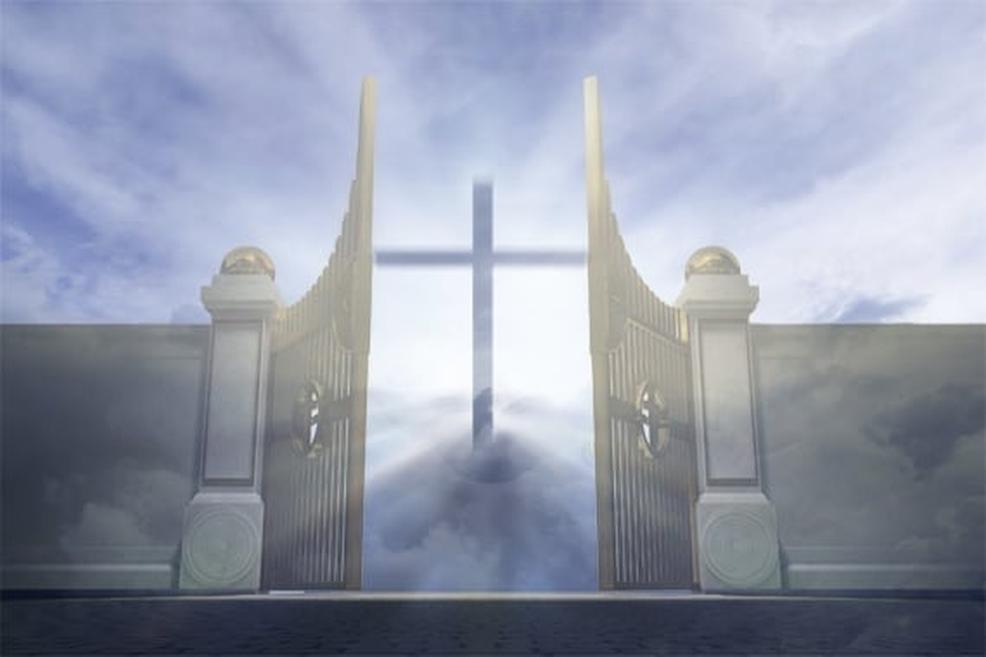Heaven est-il réel, oui ou non ?

Selon la Bible, le ciel est réel. Il ne correspond pas à l’image populaire d’un lieu sur des nuages où jouent des anges à la harpe. C’est un lieu spirituel, siège de Dieu et de Jésus-Christ, défini par la Parole divine mais non accessible à la connaissance scientifique.
1. Affirmation biblique de la réalité du ciel
1.1 La réalité du ciel selon la Bible
- Le ciel est la demeure de Dieu et le trône sur lequel Il règne (Ésaïe 66:1 ; Actes 7:48-49 ; Matthieu 5:34-35).
- Jésus-Christ est monté au ciel après sa résurrection et siège à la droite de Dieu (Actes 1:9-11 ; Hébreux 9:24).
- Le ciel est décrit comme un lieu avec des “nombreuses demeures” que Jésus prépare pour les croyants (Jean 14:1-4).
- Il s’agit d’un lieu spirituel réel, mais non physique, inaccessible à des moyens matériels (Hébreux 6:19-20 ; 8:1-2).
1.2 Description scripturaire du ciel
- La Bible parle d’une nouvelle terre et d’un nouveau ciel où Dieu résidera avec les hommes (Apocalypse 21:1).
- Des images de rues d’or et de bâtiments faits de pierres précieuses décrivent la grandeur du lieu (Apocalypse 21:19-21).
- Le ciel n’est ni statique ni ennuyeux mais un lieu destiné à la vie éternelle dans la présence de Dieu.
2. Idées reçues et conceptions culturelles
2.1 Imagerie populaire

Le ciel est souvent imaginé comme des nuages blancs avec des anges jouant de la harpe, une représentation qui ne trouve pas appui dans les textes bibliques.
2.2 Origines et influences
- La croyance en un ciel post-mortem précède le christianisme, présente chez les Babyloniens et les Égyptiens.
- La notion d’âme immortelle vient principalement de la philosophie grecque et non des Écritures.
- La Bible ne parle pas d’une âme immortelle ni d’une entrée immédiate au ciel après la mort.
3. Que se passe-t-il après la mort selon la Bible ?
3.1 La mort est comparable à un sommeil
- Les morts sont inconscients, comme endormis (Ecclésiaste 9:5, Daniel 12:2).
- La résurrection, promise par la Bible, ramènera à la vie les justes et les injustes (1 Thessaloniciens 4:13-17).
- Personne hormis Jésus-Christ n’est monté au ciel (Jean 3:13 ; Actes 2:29-34).
3.2 Illustration par les apôtres
Les apôtres insistent sur la réalité de la mort comme interruption de vie consciente. David, malgré sa foi, est mort et enterré sans être monté au ciel.
4. Qui est au ciel ?

- Dieu le Père et Jésus-Christ occupent le trône céleste (Révélation 4 et 5).
- Une multitude d’anges chantent autour du trône, mais aucun humain n’y a été sauf Jésus (Révélation 5:11-12 ; Jean 3:13).
5. Implications théologiques et motivation à la foi
- Le ciel est une récompense éternelle promise aux croyants repentis (Jean 14:6).
- La foi en Jésus permet de surmonter la mort et apporte l’assurance d’une vie éternelle.
- Le retour de Jésus préparera le chemin pour emmener les croyants auprès de Lui (Jean 14:1-4).
- Cette espérance encourage une vie fidèle et engagée, car le travail spirituel n’est pas vain (1 Corinthiens 15:58).
6. Synthèse des perspectives sur la réalité du ciel
| Perspective | Description |
|---|---|
| Croyants chrétiens | Terrain réel, lieu spirituel et éternel préparé par Jésus, finalité de la vie. |
| Sceptiques | Doute basé sur l’absence de preuve empirique; certains croient à la réincarnation ou au néant après la mort. |
| Philosophies antiques | Âme immortelle, ciel comme un lieu d’âme indépendante, non soutenu par la Bible. |
Points clés à retenir :
- La Bible affirme que le ciel est réel, mais différent des images populaires.
- Le ciel est un lieu spirituel où Dieu et Jésus règnent.
- La mort est une période d’inconscience avant la résurrection.
- Seul Jésus est monté au ciel, ouvrant la voie aux croyants.
- Cette réalité encourage une foi vivante et l’espérance d’une vie éternelle.
Is heaven real, yes or no? Let’s unpack the heavenly mystery.
Is heaven real? Yes, according to the Bible, heaven is certainly real, but not at all like the fluffy-cloud, harp-playing image many imagine.
So, does heaven exist? In the biblical context, absolutely. But—and it’s a big biblical but—heaven isn’t a place where you stroll on clouds or hang out with cherubs strumming harps. It’s far more profound, mysterious, and spiritually significant than popular culture lets on.
Let’s dive in and explore what makes heaven real, how it’s described, who’s there, and why it matters. Along the way, we’ll also debunk common misconceptions and clarify how the concept of heaven has evolved over time.
1. Heaven According to the Bible: Reality Beyond Imagination

The Bible gives a clear affirmation that heaven exists. It calls heaven “God’s throne.” Isaiah 66:1 and Acts 7:48-49 impress upon us that heaven is the divine seat of God’s authority.
Jesus Christ uniquely ascended there after His resurrection—a feat no other human has done. Acts 1:9-11 tells the story of His return to heaven, taking a seat at God’s right hand, a powerful position of divine honor.
“Christ… entered heaven itself, now to appear for us in God’s presence” (Hebrews 9:24).
Not only did Jesus enter heaven, but He also actively ministers there. Hebrews 6:19-20 paints Him as a high priest in the “true tabernacle made by God.” So heaven is not emptiness; it’s a busy, glorious realm.
Jesus said the Father’s house has “many rooms,” and that He is preparing a place for believers (John 14:1-4). That assures us heaven is an actual destination, waiting beyond this life.
2. Heaven Is a Spiritual Place, Not a Physical Cloudland
Many expect heaven to be some transparent place above the clouds, full of ethereal mist and gentle harp melodies. The Bible paints a different picture. In fact, it emphasizes that heaven isn’t a physical realm like earth; it is spiritual.
We haven’t seen heaven yet, but biblical descriptions offer glimpses: streets of pure gold, buildings adorned with pearls, emeralds, and precious stones (Revelation 21:19-21). Earthly architecture is humble in comparison to heaven’s stunning grandeur.
Interestingly, heaven is described as a “new heaven and a new earth” (Revelation 21:1). Instead of vapory clouds, it’s portrayed as a renewed, perfected creation where God dwells directly with His people.
3. Setting the Record Straight: Myth vs. Reality of Heaven
The iconic imagery of St. Peter and pearly gates, cherubim with harps, and walking on clouds comes more from folklore and art than Scripture.
- These ideas emerged over centuries, not from Jesus’ ministry, but from centuries-old cultures like the Babylonians and Egyptians, who believed in an afterlife.
- Many of these ideas also stem from Greek philosophy, particularly concepts of an immortal soul, which isn’t directly supported by the Bible.
- Plato’s idea of an immortal, indestructible soul heavily influenced Western thought, but Scripture tells a different story: the dead are “asleep,” unconscious until resurrection.
So if you thought heaven starts right after you die, think again. Scripture suggests death is like sleep, a temporary unconscious state until God awakens us at the resurrection (Ecclesiastes 9:5; Daniel 12:2).
4. What Happens After Death? The Biblical Sleep and Resurrection!
Death isn’t an immediate ticket to heaven. The Bible compares death to sleep. When you sleep at night, you’re unaware of time passing, right? The same applies to death.
King Solomon expressed this plainly: “the dead know nothing” (Ecclesiastes 9:5). And the prophet Daniel predicted a future awakening when “many who sleep in the dust of the earth shall awake” (Daniel 12:2).
The New Testament continues this thought, speaking of those “who sleep” awaiting resurrection when Jesus returns (1 Corinthians 15:51-52; 1 Thessalonians 4:13-17). That means the dead don’t ascend to heaven instantly. The dead rise later – both good and bad – for judgment.
5. Who Is in Heaven Now? The Heavenly VIPs
Wondering who’s up there knocking on those pearly gates right now? The Bible makes it clear: God the Father and Jesus Christ reign from heaven’s throne (Revelation 19:1-6). Jesus sits at God’s right hand, an honored position of power and intercession for us.
Around the throne are vast numbers of angels singing praise—“ten thousand times ten thousand” of them (Revelation 5:11-12). These heavenly hosts serve and worship, but they aren’t human souls.
Crucially, no human has ascended to heaven except Jesus Christ Himself. John 3:13 reminds us, “No one has ascended into heaven but He who came down from heaven.” Even King David did not ascend bodily (Acts 2:29-34).
6. Heaven as the Ultimate Promise, a Motivator for Faithful Living

So what’s the point of believing in heaven? It’s more than just nice thoughts or wishful thinking. Heaven is “our eternal home,” a real place God promises those who trust in Him (John 14:6).
Sin tries to block the way, but God offers the key — faith in Jesus Christ. This hope sustains believers through suffering, knowing a paradise awaits beyond this life (2 Corinthians 4:17-18).
Believers are encouraged to stay steadfast in their faith, glorifying God and giving their best effort because their work “is not in vain” (1 Corinthians 15:58). Heaven represents the reward for faithful living.
We’re made for eternity and for God, and deep down, most people sense this longing (Ecclesiastes 3:11). Our spirits thirst for a better home, and heaven is that promised place.
7. Different Views of Heaven: Believers, Skeptics, and Philosophers
Belief in heaven is central to many religions, Christianity especially. Yet, not everyone buys it.
- Many see heaven as an afterlife destination where souls go after death.
- Some skeptics reject heaven due to lack of scientific proof, viewing it as myth or folklore.
- Others hold alternative beliefs—reincarnation, oblivion, or spiritual nothingness after death.
Philosophical and mythological ideas of immortal souls and immediate entry into heaven are largely Greek and pagan in origin, not biblical. This distinction clarifies many theological debates.
8. So, Is Heaven Real? Summing It Up
Heaven isn’t just a fairy tale or a metaphor. It is a real, spiritual realm where God reigns. It is the eternal home Jesus promised His followers and the final destination after resurrection.
It’s not a place of endless harp-playing on white clouds but a renewed creation where peace and joy endure. No one but Jesus has ascended there so far. Death is an unconscious sleep, not a heavenly boarding pass.
The real hope, then, lies in the resurrection and eternal life God promises through Christ. Heaven is real—just not in the way cartoons and clichés suggest.
Food for Thought
If death is sleep until resurrection, how does that reshape your views on life and the afterlife? Does the promise of heaven motivate you towards hope or fear? And if heaven is a place of real beauty prepared by God, what does that teach us about creation and eternity?
In the end, the question “Is heaven real?” invites us to explore faith deeply, beyond cultural images, myth, and imagination. The Bible points to a profound reality beyond human comprehension, filled with hope and mystery.
Now, what will you do with that hope?
Heaven est-il un lieu réel selon la Bible ?
Oui, la Bible affirme que le ciel existe réellement. C’est la demeure de Dieu et le lieu où Jésus est monté après sa résurrection. C’est un endroit spirituel, pas physique, préparé pour les croyants.
Est-ce que les humains ont déjà monté au ciel ?
Non, aucun humain n’est monté au ciel sauf Jésus-Christ. Lui seul est descendu et remonté, assurant un lieu pour ses disciples. La Bible précise que personne d’autre n’a connu cette ascension.
Le ciel est-il un lieu de nuages et de harpes comme on l’imagine souvent ?
Non, cette image populaire n’est pas biblique. La Bible décrit le ciel comme un lieu de grande beauté avec des rues en or et des pierres précieuses, mais pas un espace flottant avec des nuages ou des anges jouant de la harpe.
Que se passe-t-il après la mort selon la Bible ?
La mort est comparée à un sommeil. Les morts restent inconscients jusqu’à la résurrection. Ils ne vont pas directement au ciel. Dieu ressuscitera les morts lors du retour de Jésus.
Le concept d’âme immortelle est-il biblique ?
La Bible ne soutient pas que l’âme est immortelle. Elle enseigne que la mort est un état d’inconscience. L’idée d’une âme immortelle vient plutôt de philosophies antiques, pas des Écritures.
Qui règne dans le ciel selon la Bible ?
Dans le ciel, Dieu le Père et Jésus-Christ siègent sur le trône. Ils sont entourés d’anges. Les humains n’y sont pas, excepté Jésus qui y est monté avant nous.

